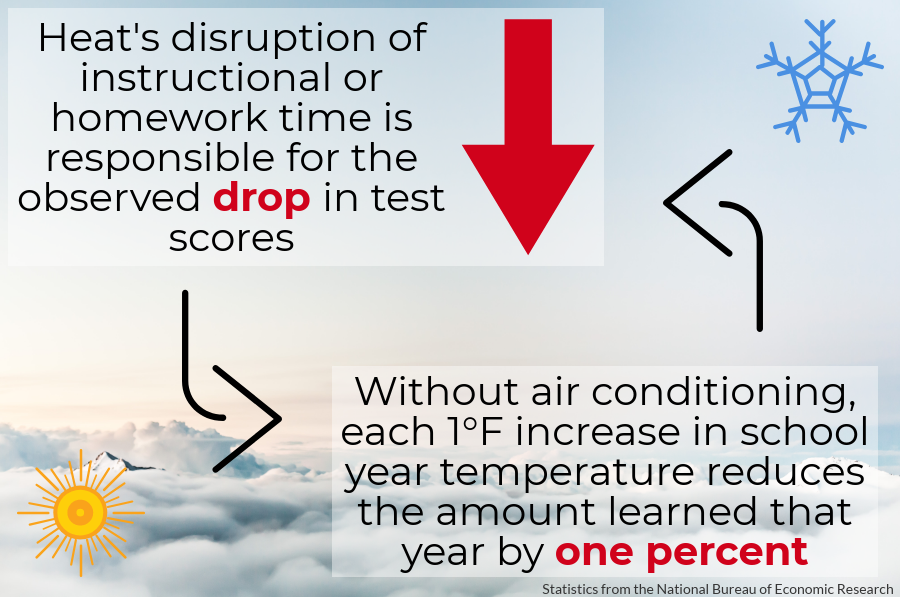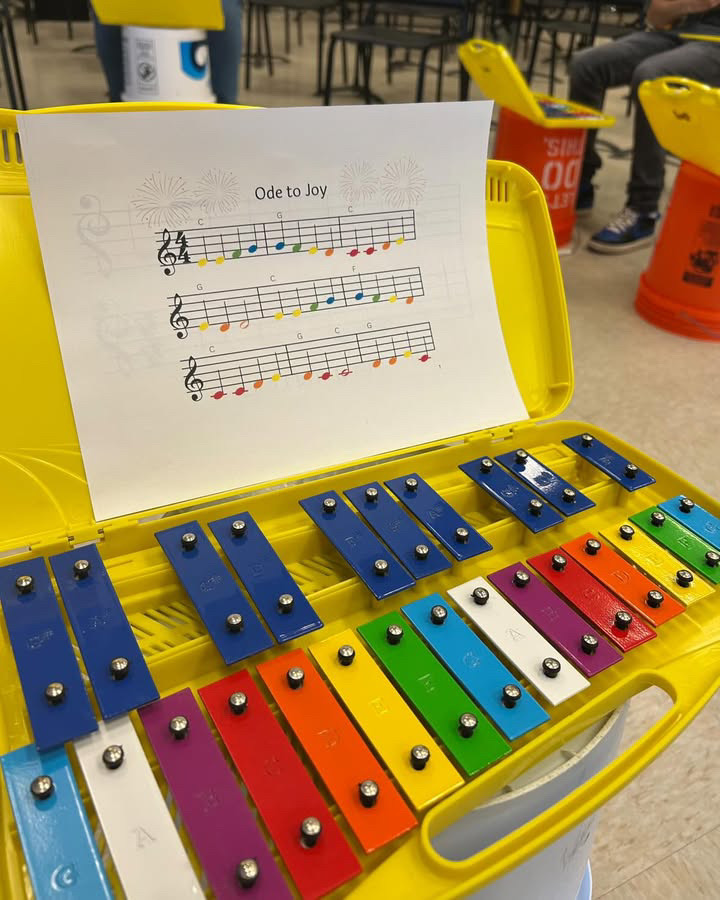AC malfunction creates discomfort among students and teachers
September 29, 2018
The air conditioning unit ticks away noisily while students shift uneasily in their seats. Students’ backs are streaked with sweat, and as the teacher lectures over the drone of fans, the temperature in the classroom only rises.
During the first week of school, many students sat in classrooms with broken or malfunctioning air conditioning units. While the air conditioning system has since returned to normal, students and faculty have expressed concern and frustration over the malfunctions. Broken air conditioning units have repeatedly been an issue for Whitman; as the old framework in the school deteriorates, each classroom is left with their own unique atmospheric issues.
The problem lies in the system’s inability to get cold air to each class due to low water pressure, administrator Rainer Kulenkampff said. He says the school aims to completely fix the system in their reconstruction project scheduled in 2020.
While students only had to deal with the humid school environment for one week this year, faculty members endured some extra days of “sauna rooms” during professional week, the week prior to school in which teachers set up their class and prepare teaching plans.
“I have my health issues and breathing the hot, humid air is like breathing through a straw,” English teacher Omari James said. His history of severe asthma made professional week painful, he said.
Air conditioning was also a problem in James’ classroom last year.
“The fact that it was never repaired didn’t make me feel like I was made a priority, or that my students were a priority,” James said.
According to a 2018 study from the National Bureau of Economic Research, heat in school classrooms can negatively affect students performance. In classrooms that normally are in the 60-70 degree range, each day spent above 90 degrees lowers annual average grades by 0.16 percent. In schools without any air conditioning, each degree increase in overall school year temperature reduces the total amount learned that year by one percent.
“Students are more tired and have less concentration on hot days,” engineering teacher Rachel Stender said. “It absolutely affects their grades, because if you are unable to concentrate, then it is harder to relay that into your schoolwork.”
In hopes that classrooms will no longer disrupt learning, both students and faculty look forward to a long term solution.
“I don’t think that this is a problem that students should have to get used to,” Stender said. “Having a regulated temperature is part of the minimum expectations towards providing for an education for a student.”
Some students found themselves easily distracted from classwork and long lectures. Junior Alex Sukhenko says he feels tired in the warm temperatures, hurting his ability to concentrate in class.
“MCPS really needs to get on this and I think they should prioritize this issue and fix the AC,” senior Anatoly Gurevich said. “Why? To help students focus on their work—when the AC is broken, you start sweating and you could end up failing your tests.”










